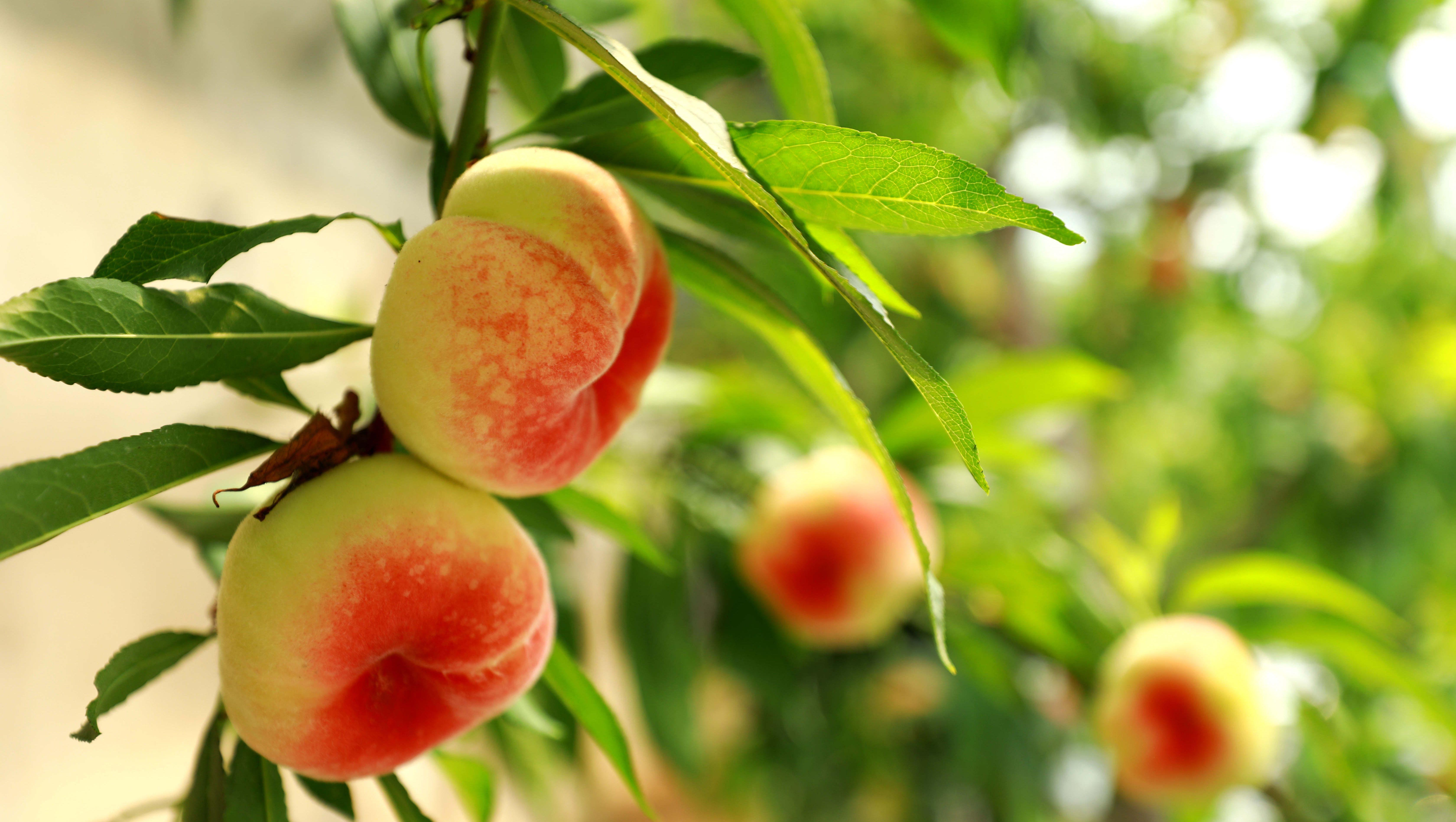Beijing News (reporter Cao Jingrui) In the Greenhouse of Pinggu in Yangchun march, the dense peach tree branches have long been hung with peaches the size of buttons, and some of the skins have been slightly yellowed and growing happily. Zhang Haiyou, secretary of the party branch of Cuijiazhuang Village, Donggao village town, Pinggu District, told the Beijing News that this year, more than 50 greenhouse greenhouses in the village planted early dew peaches are now in the hard core period, and the bag will begin to be unpacked in late March, and it is expected to seize the spring peach market in early April, and this year's output is expected to exceed 100,000 kilograms.

Button-sized peaches hang from the branches. Courtesy of respondents
Last year, farmers enjoyed the good policy of greenhouse transformation in Pinggu District, and the infrastructure of 167 greenhouses in Cuijiazhuang Village was transformed and upgraded, and the temperature control and protection work during the peach blossom period this year was more convenient. As the name suggests, the early dew peach is the earliest ripe peach. Because of its beautiful appearance, sweet flavor, excellent quality, early ripening, ruddy color and storage resistance, it is deeply loved by consumers.
The peach fruit type is ornamental, with the reputation of "fairy peach" and "shou peach", and the early dew peach tastes sweet and bites are particularly crisp. More than 20 years ago, Zhang Haiyou introduced early dew peach, and under his leadership, the villagers engaged in more and more spring peach planting, and now it has developed to more than 50 greenhouses.
"The most important thing for greenhouses to grow spring peaches is to master the temperature, especially during the few days of flowering. The growth cycle of early dew peach is short, the management technology is simple, the initial investment is small, and the fresh peach after maturity is listed early, sweet and crisp, and is particularly popular. Now we plant all dwarf densely planted early peaches, which is not only convenient for management, but also increases the yield and income per mu, and at the same time, the use of farm organic fertilizers increases the organic matter content of the soil to ensure that the fruit is green and pollution-free. This year's fruit hanging rate is much higher than in previous years, and now the peaches are ripe immediately, and now you can enjoy the peach blossoms and taste the peaches here. Zhang Haiyou said.
To this end, the party branch of Cuijiazhuang Village has set up a fruit and vegetable production and marketing cooperative to support the cooperative to extend the e-commerce industry chain forward to the production end of agricultural products, participate in all aspects of seed selection, seedling raising, fertilization, packaging, sales, etc., accurately control planting technology, optimize the benefits of category planting, and introduce decentralized traditional agricultural production into the modern agricultural production track.
Relying on the advantages of 6,400 mu of fruit and vegetable planting resources, Donggao Village town in Pinggu District will actively build a "vegetable basket" project for local seasonal vegetables in Beijing during the "14th Five-Year Plan" period. Through policy support, demonstration drive, scientific and technological support and other measures, vigorously promote the construction of facility agricultural parks, introduce new varieties, promote new technologies, and guide and encourage farmers to plant high-efficiency crops such as characteristic forest fruits and melons and vegetables in greenhouses, laying a good foundation for agricultural efficiency and farmers' income.
It is understood that according to the amount of fruit hanging this year, the price of early dew peaches sent to major markets and supermarkets is about 25 yuan / kg, and tourists pick at 40 yuan / kg.
Beijing News reporter Cao Jingrui
Edited by Mu Xiangtong Proofread by Chen Diyan